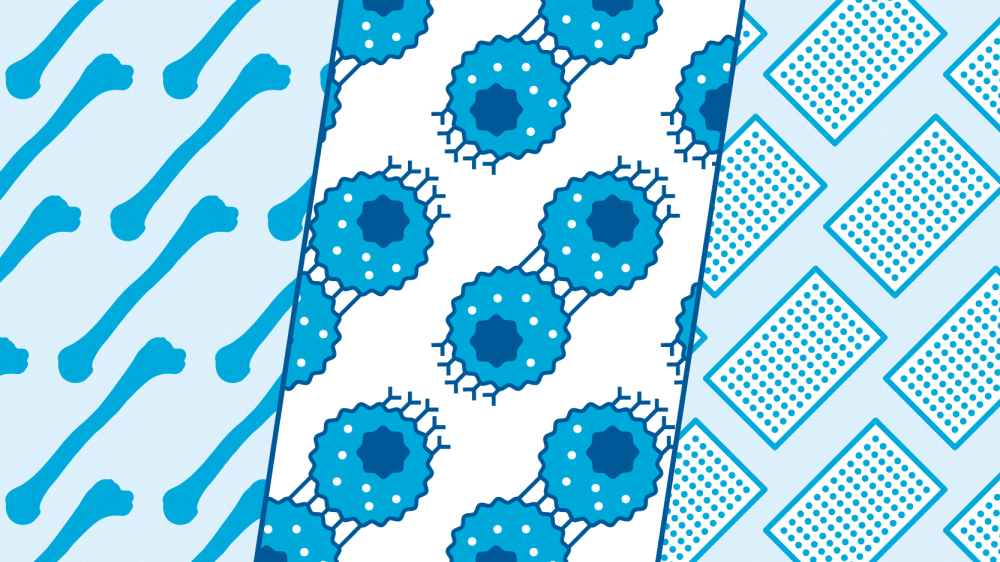Impact stories: The first in their field

Our latest impact stories feature three replacement approaches developed through NC3Rs funding that were the first in vitro models validated to replace animal use for specific experiments in their research areas.
Our funding schemes support the development, validation and dissemination of 3Rs models, tools and technologies that are well-characterised and ready for uptake into routine use. Importantly, they must be better than existing approaches in terms of their predictivity, reliability, reproducibility, cost and impact on animal welfare. These three impact stories reflect £1.3M of investment into in vitro models that were the first of their kind to be developed within their respective research areas. In total we have invested £61.6M into developing innovative approaches to replace animal use across biomedical research and testing.
Whittled down to the bone – developing a miniature in vitro bone model
With a decade of NC3Rs funding, scientists at the University of Birmingham developed the first mature bone organotypic model, then systematically adapted and modified it to replace the use of rodents across a range of therapeutic areas involving the study of bone growth and regeneration.
Read more about the first 3D organotypic model of mature bone.
Developing liver organoids – from stem cells to tumours
Over the last fourteen years, Dr Meri Huch has built a career developing organoids to study human organs in health and disease. This includes developing the first human liver organoids for preclinical research, most notably enabling liver cancer to be studied in vitro.
Read more about the method to develop tumoroids (mini-tumours) from patient-derived tumour cells.
Pharmaceutical toxin safety tests without severe suffering
The research team of Professors Bazbek Davletov and Andrew Peden, long-term collaborators at the University of Sheffield, have developed in vitro cell-based assays for replacing animal testing in the manufacture of clostridial toxin-based medical products. To date, the team has developed and extensively characterised an assay which can detect the activity of Botulinum B.
Read more about the in vitro assay developed to replicate every step of Botulinum B intoxication.
Explore how NC3Rs-funded research comes together to develop innovative new 3Rs tools and technologies that are pioneering better science.
